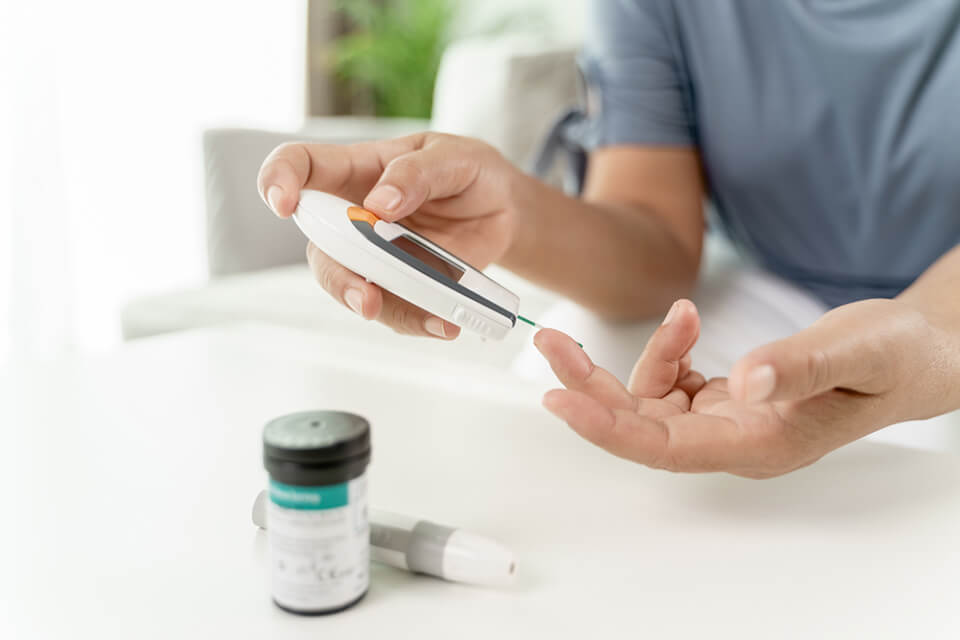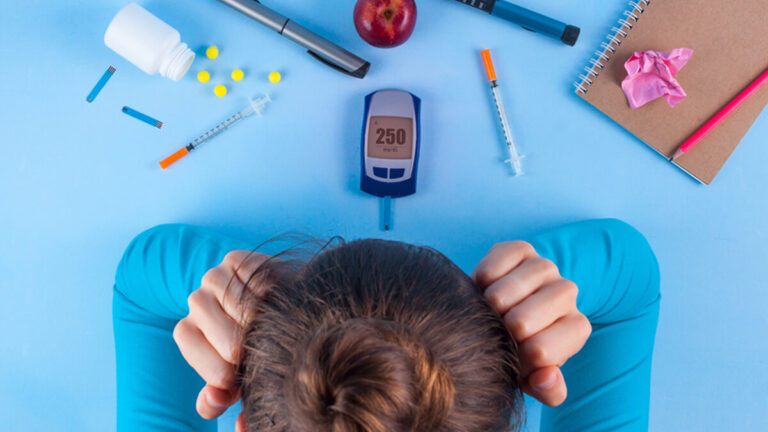Diabetes is a problem with the body’s capacity to turn sugar (glucose) into energy. The primary fuel source for our bodies is glucose.
Food is converted into lipids, proteins, or carbs during digestion. Carbohydrates are the name for foods that impact blood sugar levels.
During digestion, carbohydrates transform into glucose. The following are some examples of carbohydrates: bread, rice, pasta, potatoes, corn, and dairy products. Diabetes patients should consume carbohydrates, but only in moderation.
The blood then receives the glucose, which the cells use as fuel. Transfer of glucose from the liver to the blood cells the hormone insulin is required. Insulin is produced by the pancreas beta cells.
This process is affected in people who are diabetic. Whenever the pancreas is unable to produce enough insulin, diabetes develops.
Type 1 diabetes results from a shortage of insulin, but Type 2 diabetes occurs when the body utilizes glucose completely or partially. Either not enough insulin is generated, or the insulin that is produced has flaws that limit it from moving the glucose into the cell.

What do you need to do if diabetes is diagnosed in your body?
• Seek a recommendation for a dietician or certified diabetes educator.
• Obtain a prescription for testing equipment, such as a glucometer.

• Start changing your lifestyle.
Minimize portion sizes of your food, start a workout (exercise) routine, and choose healthier foods.
• Eat less condensed sweets.
• Increase your consumption of fiber;
• Check your blood sugar levels occasionally.
There are several things you may take to help yourself if you have diabetes. Medication is only one part of your care; you also need to maintain a healthy weight, up your physical activity level, take your medications as directed, and consult with your doctor to keep your blood sugar under control.
Your ability to control yourself will influence the kind of life you live.
What treatments are available?
Although there are many techniques to manage diabetes, none of the diabetes has a “cure” currently. Diabetes Treatments are made to support the body’s ability to regulate blood sugar levels. According to studies, maintaining adequate blood sugar management is essential to prevent diabetic complications.
1. Insulin is necessary for Type 1 diabetes. Insulin that is absent from the body is replaced via injection. You’ll need to find out how to balance your insulin levels with how much food you eat and how much exercise you get.
You are required to take advice from a diabetes educator, who can help you manage your diabetes.
2. Your blood sugar levels will affect the kind of treatment you receive for type 2 diabetes. A lot of people receive advice on how to change their lifestyle and lose weight. Working with a nutritionist and diabetes educator is important.
Starting an exercise routine and making specific dietary changes are the first steps in treatment. Since diabetes is a progressive condition, the course of therapy may change as you progress. If you are already taking medicine, you may need to take more of it or different medications, and eventually, you may need to start taking insulin.





Top ,.. top top … post! Keep the good work on !
Hi, I hope you are well. I’m reaching out because I think you would be interested in a software known as Jasper AI. It is a robotic writer powered by arttificial intelligence technologies that can curate content material 5x faster than an average human. With Jasper AI, you receive 100 original content with zero plagiarism flags which are accurately written. You also get pre-written templates on specific categories. Jasper writes SEO-friendly content material, which means all of the content material that you get by utilizing Jasper AI is optimized and ready to attract sales.You are able to test it out for free right here – JasperAI. I’d really love to hear your thoughts once you’ve tried it out.
[…] water’s capacity to reduce blood sugar is one of its most important health advantages. Pectin, a soluble fibre found in okra, can help […]
[…] of inflammation increases the likelihood of developing chronic illnesses including heart disease, type 2 diabetes, and some diseases while also causing harm to cells and […]